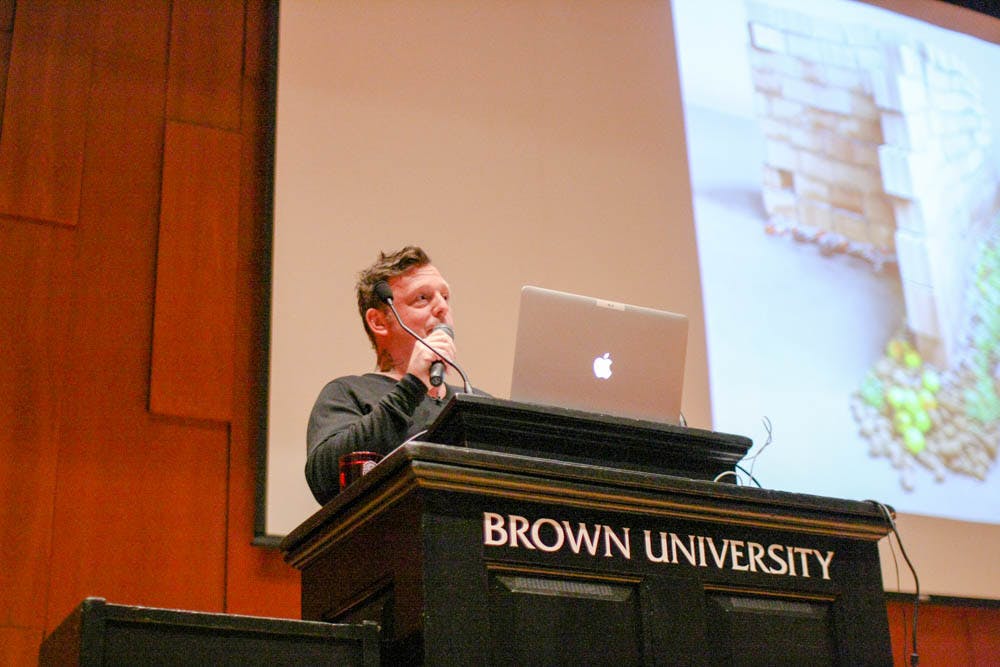Urs Fischer’s “Untitled (Lamp/Bear),” a multi-story blue teddy bear sculpture, made waves this summer when it materialized on Ruth Simmons Quadrangle. But when Fischer spoke in Salomon Hall Wednesday his imposing installation played sideshow to a talk that centered on art itself and its reception.
“I really thought it would be a lot about the bear, and it wasn’t really,” said Jeremy Joachim ’17. “It was a lot about (Fischer’s) ideas on art’s purpose and his own purpose.”
“Individual artwork can resonate in your mind,” Fischer said. “And art is our collective memory.” Fischer explained how viewers look upon an artwork through their own lenses and narratives and asserted that each individual memory of specific art pieces contributes to the “living organism” that is art.
Fischer went on to note that people “like to shrink artwork to monetary values: We like the control.”
“But art can’t be talked about in terms of being — only in terms of becoming,” he said. In this way, art cannot and should not be controlled.
Though a large portion of the lecture covered abstract musings on art and its role in society, Fischer also gave the audience a look at his other works.
According to Jo-Ann Conklin, director of the David Winton Bell Gallery, there are two important facts about Fischer’s work. The first relates to “Fischer’s exploration of material. … He pushes the boundaries (of his medium),” Conklin said. The second is that Fischer’s work is permeated with his “playful and subversive sense of humor,” she said.
Fischer’s works range from the tiny to the gigantic. From a 29.5-foot-tall metallic tree from which hang 2,000 framed drawings and color prints to a miniature blue horse only eight inches tall, Fischer’s eclectic choices of scale and material make “his work hard to categorize,” Conklin said.
One of Fischer’s distinctive artworks is his melting statues, which embody a recurrent ambition of his — removing matter through artistic production. These statues made of wax are fine replicas of 16th-century statues or representations of everyday men that are set on fire during the exhibition. The viewer can then watch the statues take dramatic shapes as they melt. The inevitable destruction of his artwork in this case relates to Fischer’s conceptualization of art as something that is “becoming” rather than “being” and whose nature is not fixed in the objects that compose it but is constituted by observers’ impressions.
Fischer concluded his talk by discussing “Lamp/Bear” and the controversy it has created on campus — in reference to the statue’s donor and the donor’s hedge fund’s insider trading. Fischer said he believes the reaction of viewers on campus has more to do with the context of the sculpture’s donation than with the artwork itself.
The artist expressed ambivalence about the hullabaloo his work has caused on campus. “Lamp/Bear” was made 10 years ago, and Fischer said of it, “I don’t know what to think about works I did in the past.”





